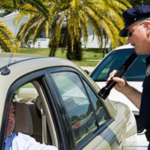September 1, 2020 Update on Criminal Law
The defense attorneys with LEWIS & DICKSTEIN, P.L.L.C. stay abreast of the most recent changes in the law. Because Michigan and federal law can change at any moment, you will want lawyers who are consistently aware of the latest developments.

Recent Criminal Legal Issues
New are regularly passed on a state and federal basis. Additionally, Michigan and federal criminal laws are interpreted and re-interpreted by trial courts and appellate courts throughout Michigan and the United States. Here are some recent updates in federal and Michigan criminal law.
Prosecutorial Misconduct – Withholding Evidence
In Carusone v. Warden, the defendant discovered that the prosecution had withheld medical records that discredited the government’s theory and supported the conclusion that the victim died due to cardiac arrest brought about by drugs, alcohol, stress, and exertion. Michigan courts found that the evidence was not material and upheld the conviction. The 6th Circuit Court of Appeals reversed and ruled that the evidence that the prosecutor withheld should have been given to the defendant.
Search Warrant Lacked Indicia of Probable Cause – Good Faith Exception Inapplicable
In United States v. Ward, the police obtained a search warrant for the defendant’s home based on evidence obtained from one trash pull, his prior record, and incriminating text messages showing that he dealt drugs. Michigan courts upheld the search warrant. The 6th Circuit Court of Appeals reversed and ruled that the evidence relied upon in the warrant was insufficient to show probable cause that the home was used for drug trafficking. The Good Faith Exception was inapplicable because it does not apply where the government failed to establish a sufficient nexus between the defendant’s drug-dealing and his home. Michigan criminal law often tracks federal constitutional updates.
Facts Not Relied Upon for Sentencing Must Be Removed from a PSIR
After a conviction for a felony or misdemeanor, the probation department routinely performs an investigation and provides a report to the court with a recommendation. When there are facts in dispute, judges frequently state that they will not rely on the disputed facts, while at the same time refusing to remove the information from the presentence report. The Michigan Supreme Court ruled in People v. Swenson that if the court is not going to rely on the disputed facts, they must be removed from the report upon the defendant’s request.

Michigan Criminal Law – The Court Must Pay for an Expert That is Necessary for the Defense
An indigent defendant cannot afford to hire an expert witness. Even a defendant with retained counsel might lack sufficient funds to hire such a witness. The Michigan Supreme Court in People v Kennedy ruled that a trial court must conduct an individualized assessment of the sum of money required to assure that the defendant has access to an expert needed to conduct an appropriate examination and assist in evaluation, preparation, and presentation of the defense.
A Defendant May file a Second 6.500 Motion if there is Newly Discovered Evidence
After a conviction and all appeals are exhausted in Michigan, a defendant’s only avenue to seek relief from a conviction is a 6.500 Motion. Under MCR 6.500 et seq., only one Motion for Relief from Judgment may be filed. An exception to this limitation is if there is legitimate, newly discovered evidence. In People v. Hammock, the Michigan Supreme Court ruled that a trial court, even on a second or subsequent 6.500 Motion, based on newly discovered evidence, must assess whether a reasonable juror could find the newly discovered evidence credible on retrial. If so, the trial court must then assess the effect of the newly discovered evidence in conjunction with the evidence presented at the original trial. Finally, the trial court must decide whether the newly discovered evidence would make a different result probable on retrial.
Prior Bad Acts Evidence, Otherwise Knows as 404(b) Evidence is Not Always Admissible
The Michigan Court of Appeals ruled in People v. Jason Sadowski that a circuit court judge committed reversible error when he granted the prosecution’s Motion to Admit Similar Acts Evidence. The appellate court ruled that the prior bad acts must be similar to the current charges. Further, the court ruled that the prosecutor’s alleged reasons for the admissibility were not persuasive and were a veiled attempt to avoid admitting that the evidence was being admitted to show the defendant’s propensity for violence. Propensity evidence is not admissible. Also, the appellate court ruled that the evidence, even if marginally relevant, was unfairly prejudicial. Given that prosecutors in Michigan routinely request the admission of prior bad acts evidence, this case will be a valuable tool to skilled defense lawyers across Michigan.

Michigan Criminal Defense Lawyers
The Defense Team with LEWIS & DICKSTEIN, P.L.L.C. uses a unique team approach that results in each member of the team staying well-informed on the latest developments in criminal law. Because our lawyers are familiar with every aspect of the newest laws and case decisions, we can utilize the latest defenses available to help our clients in court. A dismissal is our ultimate goal in every case when possible. In the event of a conviction by trial or plea, we will use the most recent developments in Michigan criminal law to mitigate any consequences for our clients.
Call us today at (248) 263-6800 for a free consultation or complete an online Request for Assistance Form. We will contact you promptly and find a way to help you.












